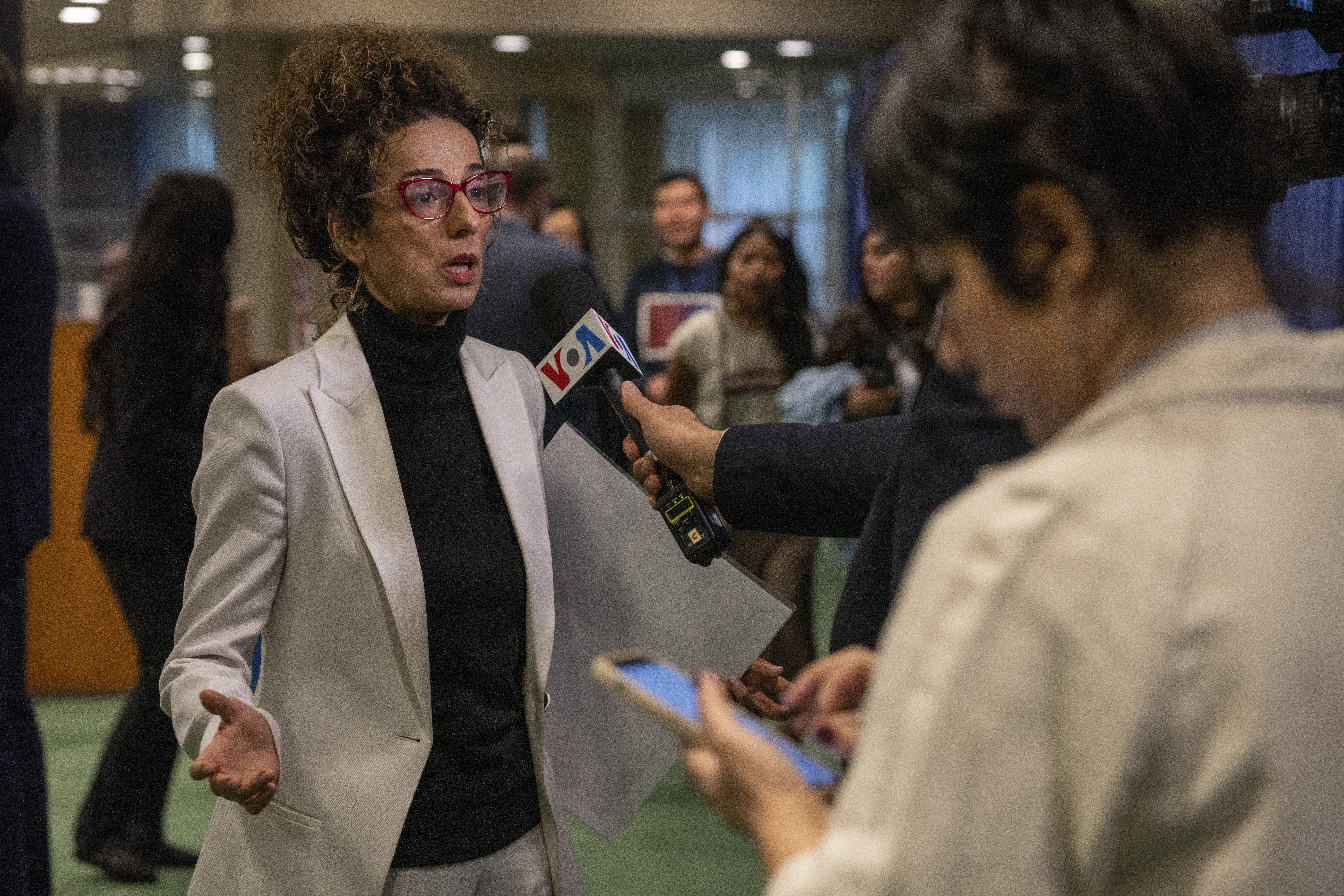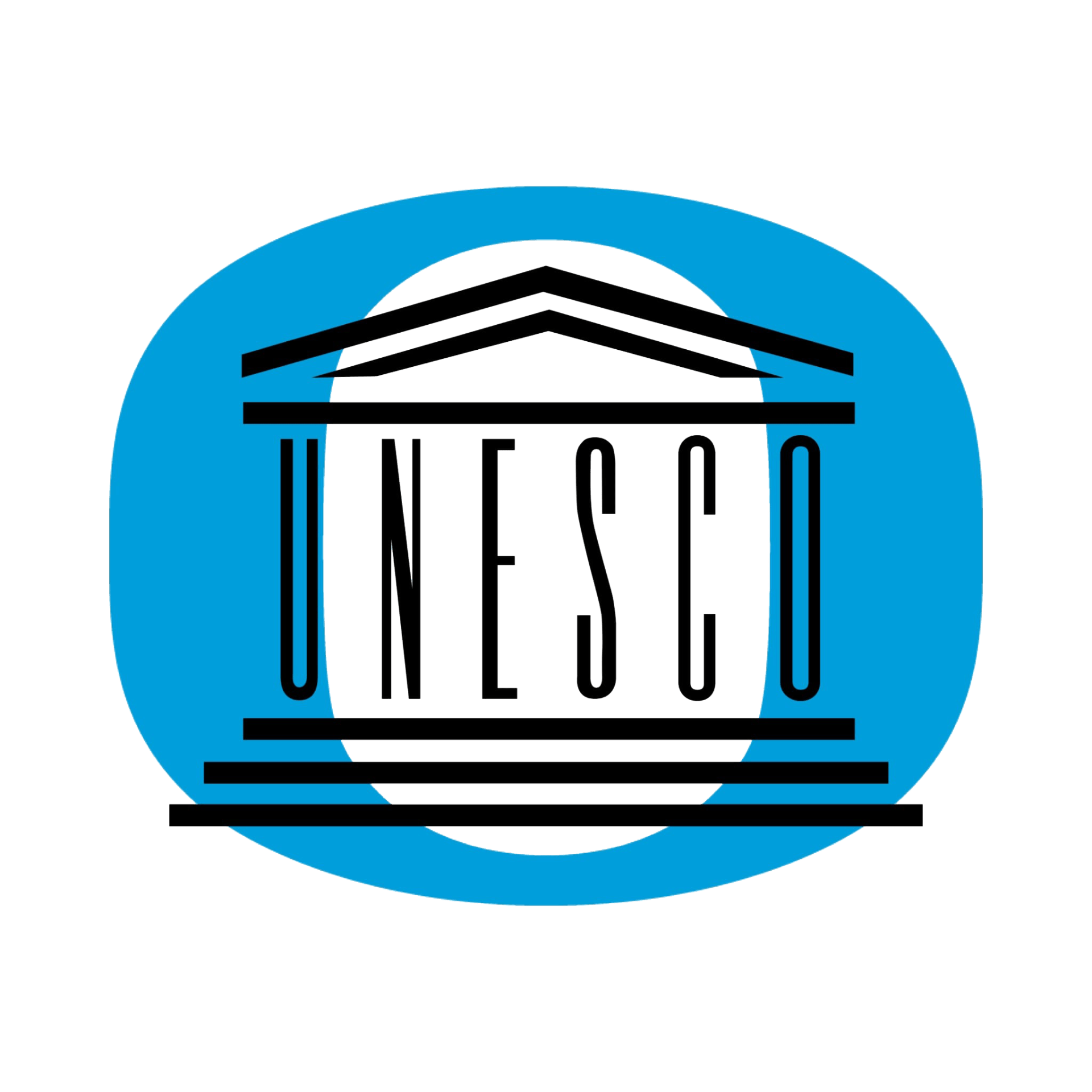Iranian-American journalist and activist Masih Alinejad disavows Iranian regime.

Journalist Masih Alinejad speaks to news outlets at the United Nations Headquarters for the World Press Freedom Day “speaking out for our rights” panel.
UNITED NATIONS — “I was the target of the Islamic Republic to be kidnapped,” Masih Alinejad, an Iranian-American journalist, said in the United Nations Headquarters. “A man with a loaded gun — an AK47 — was in front of my house. I would have been killed.”
Alinejad is an outspoken Iranian activist: “My voice is my weapon,” she often says. For the 30th annual World Press Freedom Day, she urged the United Nations General Assembly to take action.
“I call on the UK government to take the leap, and to pass the resolution about transnational oppression against journalists and free press,” she said.
The resolution is a reaction to the Iranian broadcasting channel Iran International — one of the most prominent providers of news on anti-government protests in Iran — being forced to relocate to Washington D.C. from London in February, after facing threats from the Iranian government.
According to a BBC article, “In November, two British-Iranian journalists from the channel were warned by police of a possible risk to their lives,” journalist George Wright wrote. “An armed police presence was stationed near the channel’s studios in Chiswick, West London, and concrete barriers were placed outside the building.”
Within the resolution, Alinejad highlighted UN Security Council Resolution S/RES/1371, adopted in 2001, which “reaffirmed the need to combat by all means, in accordance with the Charter of the United Nations, threats to international peace and security caused by terrorist acts.”
Alinejad is no stranger to terror. Exiled from Iran for the past 13 years, she asserts her hatred towards the Islamic Republic and Supreme Leader of Iran, Ali Hosseini Khamenei, through her social media platforms, which have amassed nearly 9 million followers.
“Social media is our tool in Iran to fight back the censorship. The Islamic Republic is scared,” she said. “How ironic that the Supreme Leader of the Islamic Republic banned 18 million people from using the internet, from using Twitter, from using Instagram, yet has accounts on the same platforms.”
In 2019, Iranian authorities deliberately shut down the internet during nationwide protests to censor the world from the scale of the regime’s killing of innocent protestors and journalists. Coined the 2019 Internet Blackout, the event remains the first ever and longest total internet shut down in a large country.
“When the Iranian regime found the power of social media — that it can put them in the spotlight — they shut down the internet,” she said. “In three days, they killed 1500 innocent protestors. We didn’t know what was going on inside Iran. Immediately, when protestors found the power of the effects of the internet, they bombarded us with photos and videos of people being killed in Iran.”
Iranian journalists are in undeniable danger. The Iranian regime is attempting to completely deny their right to freedom of expression. However, their bravery and contributions are not ignored. Three imprisoned Iranian women journalists, Niloofar Hamedi, Elaheh Mohammadi and Narges Mohammadi, have been named laureates of the 2023 UNESCO Guillermo Cano World Press Freedom Prize.
Alinejad’s social media activism and proposed resolution underscore the importance of freedom of expression and the United Nation’s responsibility to protect and advocate for journalists — especially Iranian journalists. “The Islamic Republic is one of the biggest enemies of free press,” Alinejad said. “If you are a journalist, you can go to jail. You can get raped. You can get tortured, if you just express yourself.”

